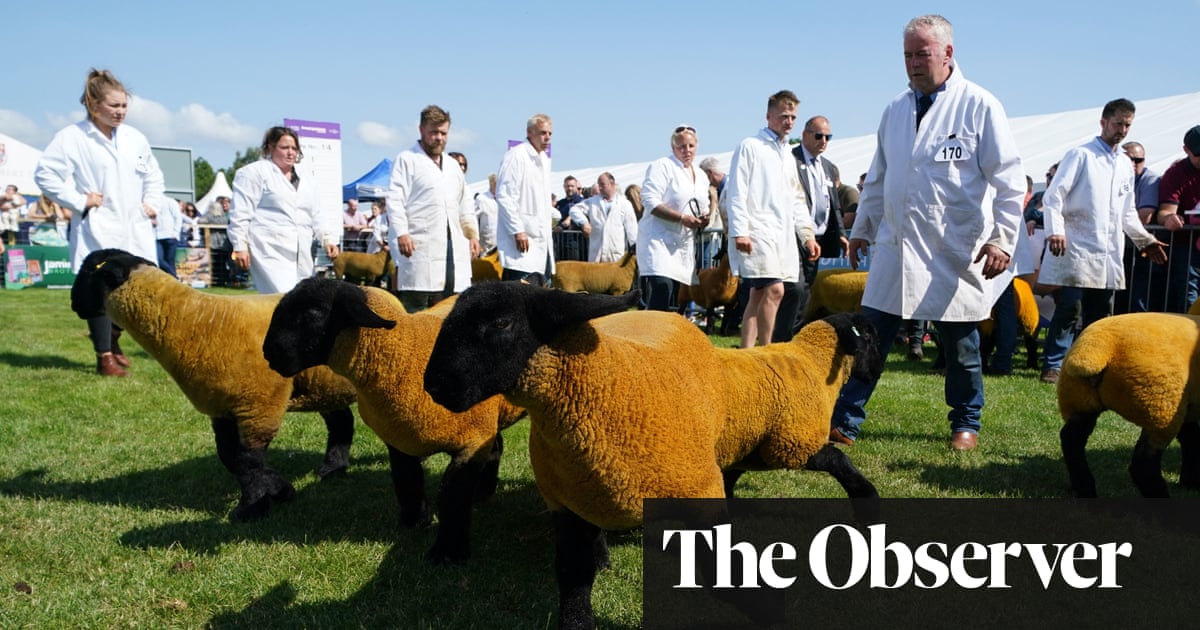
One of the highlights of the Great Yorkshire Show for Bridlington farmer Geoff Riby – other than his ram winning the Beltex male champion in the sheep class competition – was watching Lorenzo the Flying Frenchman perform in the main ring at the Harrogate show ground.
Riby has exhibited at the fair since 1972 and has seen this annual event evolve from an industry trade fair promoting tractors to the sort of festival that would feature one of France’s most skilled equestrians on the bill.
“Now, lots of people who visit aren’t from the farming community,” says Riby. “Instead they have a thirst for knowledge about the countryside and food production. Education has become an important part of the show – as well as shopping and food.”
The Great Yorkshire Show is not the only event welcoming new visitors. Agricultural and county shows across the UK are reporting record attendance numbers this summer.
These annual local celebrations of livestock and produce have been handing out awards to champion farm animals and crops for hundreds of years, but these days the show is the main attraction. Many sell out before they start.
That was the case at the 2023 Great Yorkshire Show. The four-day event had 140,000 visitors, hitting its capacity of 35,000 ticket holders each day.
Last month’s Royal Highland Show broke its record when 217,000 came to the three-day event to witness, among other activities, the world sheep-shearing championship and chainsaw carving demonstrations. The Royal Highland Show brought in around £40m business into the area of Ingliston in Edinburgh.
The Association of Show and Agricultural Organisations estimates that about 7 million Britons – roughly 10% of the population – visit agricultural shows every year. That’s a lot of enthusiasm for sheepdog trials and locally made honey.
Riby is a member of the Yorkshire Agricultural Society and he points out that without this new audience many of the traditional shows wouldn’t be financially viable. “There aren’t enough people working as farmers to make this work as an industry trade show any more,” he says.
He worries that productive farmland is being replaced by rewilding. “I can see a time when there will be a food shortage.”
It is anachronistic that agricultural shows are booming when the farming industry is in worldwide decline and the number of full-time British farmers has fallen by 33%. But attender demographics have changed over the decades. A 2018 study of the Royal Welsh Show found that 39% of visitors had no connection to the agriculture industry.
Perhaps it is due to the rise of farming as entertainment on YouTube, where thousands have tuned in to watch farmers go about their daily chores in recent years, or the popularity of video games such as Farming Simulator. TV shows such as Clarkson’s Farm or All Creatures Great and Small have also given farming life a boost. Series two of Clarkson’s Farm reached 7.6 million viewers on Amazon Prime, outstripping the audience for The Lord of the Rings.
Richard Benson, author of award-winning memoir The Farm, which was about his family’s Yorkshire pig farm, has attended agricultural shows his whole life. He has been competing in them, in the meadow hay section, since 2018.
Benson thinks that these festivals benefit from newcomers who have moved to the country. “The best local show near to me is in Bishop Wilton [near York]. It’s done really well in recent years, which seems down to the committee tapping into people who’ve moved into the village who want to take part in local life.”
Many of the new arrivals participate in the crafts events such as jam-making and flower-growing rather than traditional farming categories.
Nina Matsunaga is chef patron at the Black Bull Inn in Cumbria. The German-Japanese chef, who moved to Sedbergh in 2014, has found taking part in food demonstrations at events such as the nearby Westmorland County Show, including one focused on cooking with game, is a good way to meet local suppliers.
“For the public they’re a way of reconnecting with farmers and understanding how food is made, which is something that we as a society are largely disconnected from,” she says. “They encourage you to source and shop locally. People in general are more interested in how their food is reared and produced and, ultimately, they’re far more health-conscious. They want ingredients that come from trusted sources.’’
Benson suggests any newcomers keen to discover the agricultural show scene should look up writer Philip Larkin’s 1973 poem Show Saturday – which is about the Bellingham Show in Hexham – to get a sense of the atmosphere. “It’s just his most cheerful poem,” he says.
“The reason I love the show is that at their heart are real communities of people coming together to say ‘this is what we did this year’,” Benson says.
“When my hay is lined up with the others on the trestles and you watch as everybody comes up and smells it, it makes me feel like crying.
“You’ve spent a year or more on it, working often in the mud and cold, and then you see it giving pleasure to someone on a sunny summer day.”












